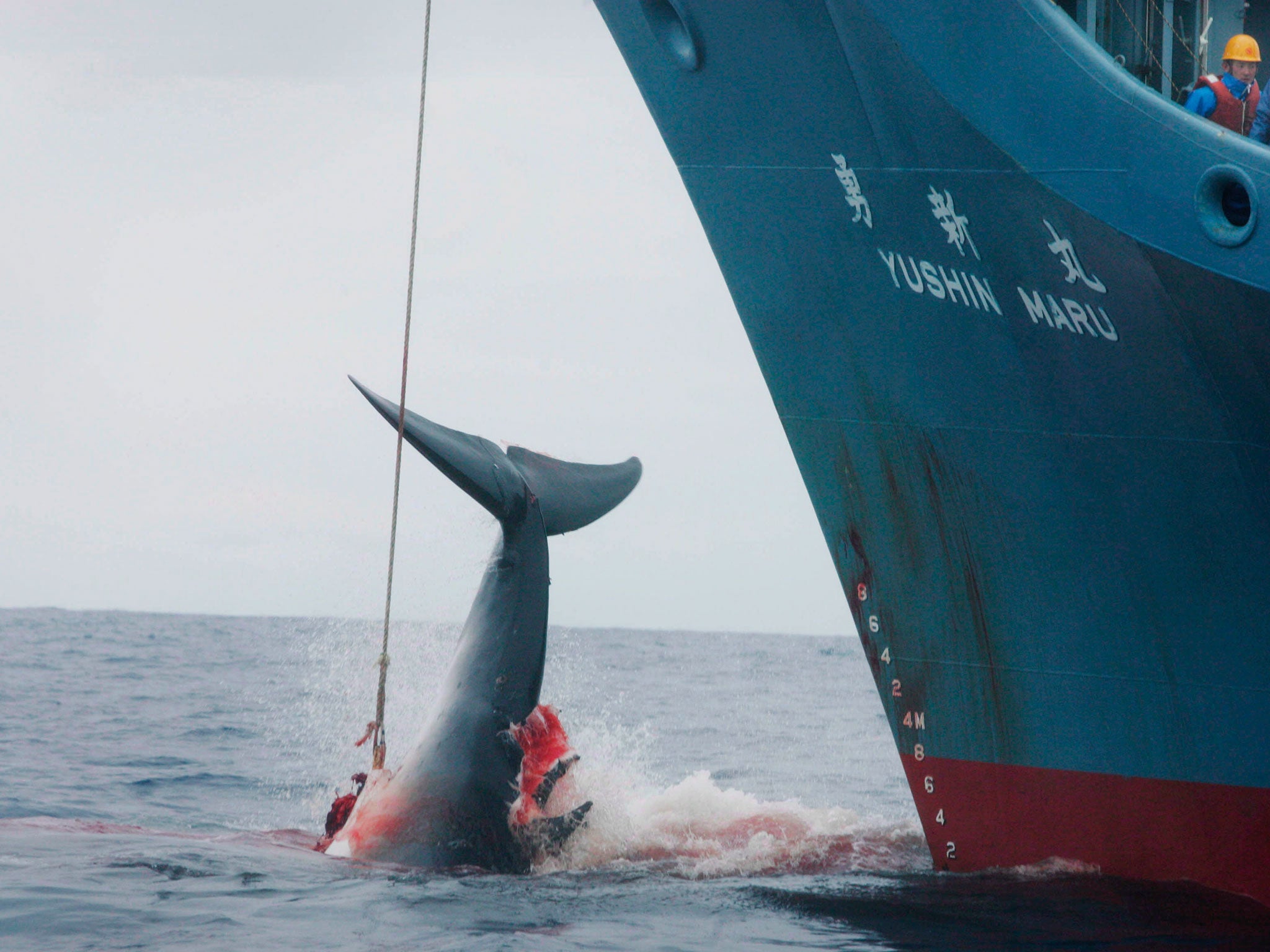Japan to resume commercial whaling next month after 30 years
Fleet of hunting vessels to target beaked whales and minke whales in Japanese waters

Your support helps us to tell the story
From reproductive rights to climate change to Big Tech, The Independent is on the ground when the story is developing. Whether it's investigating the financials of Elon Musk's pro-Trump PAC or producing our latest documentary, 'The A Word', which shines a light on the American women fighting for reproductive rights, we know how important it is to parse out the facts from the messaging.
At such a critical moment in US history, we need reporters on the ground. Your donation allows us to keep sending journalists to speak to both sides of the story.
The Independent is trusted by Americans across the entire political spectrum. And unlike many other quality news outlets, we choose not to lock Americans out of our reporting and analysis with paywalls. We believe quality journalism should be available to everyone, paid for by those who can afford it.
Your support makes all the difference.More than three decades since an international moratorium on commercial whaling was brought into force, Japan has withdrawn from the agreement and is poised to resume hunting the animals from next month.
The country signed up to the International Whaling Commission in 1982 and stopped commercial operations in 1986.
Since then it has continued to hunt whales, though ostensibly only for “scientific” reasons.
A fleet of five vessels is due to embark on the first commercial whaling mission on 1 July, the Japan Times reports.
They plan to separately hunt for berardius whales (beaked whales) in Japanese waters off Minamiboso, close to Tokyo, for two months.
At the end of August, the fleet will reportedly regroup in waters off Kushiro in the northeast of the country, and will then hunt minke whales.
Even though Japan had been only conducting “scientific” whaling expeditions, between November 2017 and March 2018, the country reported catches of a total of 333 Minke whales, of which 122 were pregnant females.
Japan’s claims of hunting the animals for research purposes have been criticised internationally as a cover for continuing commercial whaling.
The country is not licensed to hunt in international waters, or in Arctic waters, where the country has hunted whales in recent years.
Despite the return to commercial whaling, demand for whale meat in Japan is at a historic low.
In the 1960s around 200,000 tons of whale meat was consumed in Japan each year. The figure is now closer to 5,000 tons according to government data. The industry reportedly employs around 1,000 people.
Greenpeace Japan programme director Hisayo Takada, said: “Our oceans and their ecosystems are under threat from rising sea temperatures and acidification due to climate change, industrial fisheries and plastic pollution. Whales are also greatly affected by climate change, plastic pollution, oil exploration and by catch which is associated with industrial fishing. While these problems require time to be resolved, there are also threats that can be immediately removed, such as commercial whaling. Commercial whaling has been banned since 1986, by the International Whaling Commission that the Japanese government helped set up.
“It is very disappointing that Japan continues to lose the trust of the international community due to their resumption of commercial whaling. Greenpeace urges the Japanese government to abide by international law and to continue its efforts to cooperate with the international community.”
She added: “In order to protect all marine life from threats such as climate change and marine pollution, we need more than ever a strong global ocean treaty to help us establish and expand ocean sanctuaries around the globe to reach the international ambition of protecting 30 per cent of our oceans by 2030.”
Join our commenting forum
Join thought-provoking conversations, follow other Independent readers and see their replies
Comments